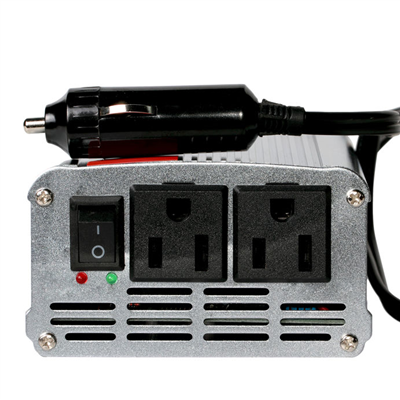Selecting The Right Inverter

Selecting the right inverter can be rather confusing given how complex they are. However, we're going to explain what makes a inverter tick and what you should be looking for when it comes to the product. With this being said, here's a look at inverters.
Inverter Basics
To fully understand what makes an inverter stand out, you'll need to know how they're measured. Such things to look out for on an inverter description are:
-
- Amps - Amps are the measure of electrical currents being used at the moment. Amps determine the wire needed for the product to operate (which occurs on the low voltage/DC side of the product). As all wire has resistance, the amps that travel through the wire create heat. If the wire cannot handle the amps, you're stuck with hot wires. In addition to hot wires, you'll get voltage drops if the wire happens to be too small. Another thing to consider is that amps do not come in "amps per day" or "amps per hour".
-
- Watts - Watts are essentially how much power the device can supply (or use) when its turned on. There is no such thing as "watts per day" or "watts per hour". If something happens to use 100 watts, it means that the watts being used is the amps multiplied the voltage. For example, if a device uses 120 volts at one amp, it is still 120 watts. A watt is also defined as a Joule, which goes by the second. Using the term "watts per hour" is like saying "miles per day".
-
- Watt-hours - A watt hour (or kWh) goes by how many watts are used in a single hour. This is often what people use when it comes to "watts per day". If you look into power friendly utility, they sell the utility at kWh per hour. Long story short, kWh stands for kilowatts per hour, or one watt is equivalent to a thousand hours.
-
- Amp Hours - Amp hours (or AH) are what people are referring to when it comes "amps per hour". The AH is very important as it registers the capacity of the battery. As most inverters run from batteries, the AH helps determine how long the battery can run.
-
Considering the information above, finding the inverter that can get your task done will be much easier. Since all of these small qualifications add up, it's safe to say that you can shop for an inverter (and understand the jargon) with a clear head.
Contact Us for More Information
Comments are closed for this post, but if you have spotted an error or have additional info that you think should be in this post, feel free to contact us.